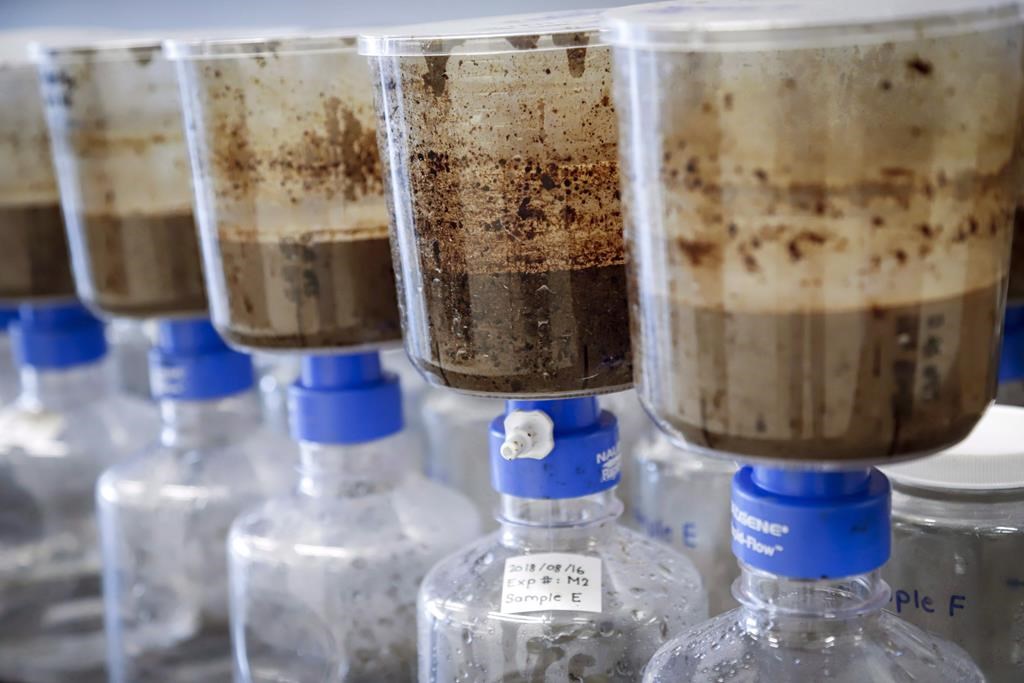The Alberta Energy Regulator says it’s looking for an investigator to dig into a release of oilsands tailings water that wasn’t made public for nine months.

In a statement released Tuesday, the regulator said it’s seeking a “qualified, impartial, third-party body” to consider how it notified First Nations, governments and other stakeholders about two releases at Imperial Oil’s Kearl oilsands mine north of Fort McMurray, Alta.
“I have been in regular contact with (the regulator’s) CEO Laurie Pushor, and he assures me he welcomes this third-party review both as an opportunity for an independent recounting of the facts surrounding the (agency’s) response and as an opportunity for (it) to learn and grow as applicable,” said the regulator’s chairman, David Goldie, in a release.
But one resource law expect said the move is unlikely to answer all the questions building around a body that’s supposed to both license industry activity and police its behaviour.
“As a way to restore trust, this is bizarre,” said Nigel Bankes, former dean of resource law at the University of Calgary.
Although Imperial notified the regulator in May of discoloured water near one of the tailings ponds, the seepage wasn’t disclosed publicly until nine months later after another 5.3 million litres of water containing tailings escaped from a catchment pond.

Area First Nations remain angry about not being kept apprised of the ongoing investigation. Federal Environment Steven Guilbeault called the situation unacceptable. His provincial counterpart Sonya Savage wasn’t happy and the Northwest Territories governments enacted a dispute mechanism within a watershed sharing agreement it has with Alberta.
The regulator said the inquiry will consider issues around notification and the timing of notification to Indigenous communities and other stakeholders. It will also consider “other potential process issues.”

Get daily National news
The inquiry’s report is to be made public, the regulator said. It is expected to be completed about 90 days after the contract is awarded.
The decision to undertake the investigation was made on March 16 but released almost two weeks later.
“The board will have no further comment until it has reviewed the final findings,” the regulator said.
Bankes said the move reflects a corporate mentality at an institution that’s supposed to be concerned with the public good.

“It fits that mould as opposed to a governmental mould, which says the ultimate person responsible for this, even if it’s an arm’s-length agency, is the minister of energy because it’s his statute.
“(The investigation) deflects criticism, it allows the AER to say we’re doing something and it protects the minister. It insulates the government of Alberta.”
Chief Billy-Joe Tuccaro of the Mikisew Cree First Nation, one of the affected bands, confirmed he wasn’t notified about the regulator’s decision despite regular weekly calls.
“The province and their regulator don’t seem to be getting the message,” he said. “We are still learning about actions from news releases.”
Tuccaro wondered if a “hand-picked consultant” will get full disclosure from officials within the regulator.
“Mikisew calls on the (regulator) and the province of Alberta to do the honourable thing and allow Mikisew to appoint their own reviewer and to finally disclose the information to the actual affected party — Mikisew.”
Richard Feehan, Indigenous relations critic for the Opposition New Democrats, said the review is welcome but doesn’t address the government’s role.

“There needs to be a review into the (United Conservative Party’s) handling of this incident and answers regarding what they knew and when they knew it,” he said.
The regulator’s probe would be the third into what happened around the Kearl releases.
Alberta’s information commissioner is investigating whether the regulator had a duty to release information.
The House of Commons environment and sustainable development committee has invited the head of Imperial as well as the regulator to answer questions. The committee also hopes to hear from Environment Canada, the Northwest Territories and seven area First Nations.
No date has been set for that meeting.







Comments